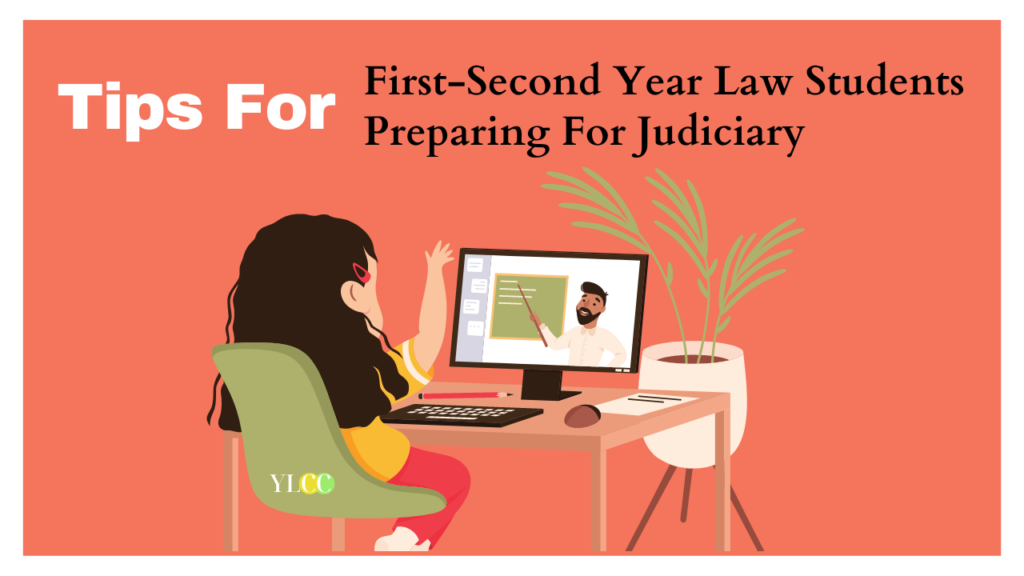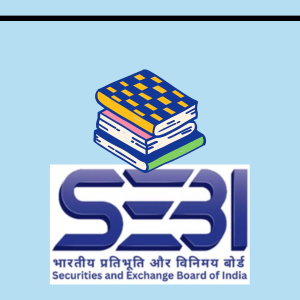
One of the career options which a law student may opt for after graduation is appearing for the lower Judicial Services Exams. A fresh graduate is eligible to apply for the post of Civil Judge (Junior Division). These exams are either conducted by the State Public Service Commission under the supervision of respective High Courts or directly under the guidance of respective High Courts. Unlike UPSC, there is no fixed schedule for these judicial exams, it is the sole prerogative of the States to conduct the exams as per their requirements. One needs to be meticulous while preparing for such competitive exams. Therefore, it becomes extremely crucial to determine whether you are genuinely interested in becoming a Judicial Officer.
In this article, Team YLCC brings you a few tips for first/second year law students to consider before beginning their journey as judiciary aspirant:
- Introspection: You need to ask yourself why you decided to prepare for the Judicial Services Examination. Whether it is your own choice or due to other external factors is important before moving forward with this. External factors may include family pressure or the university atmosphere around you. In most law schools, you are likely to find several students around you who are judiciary aspirants.
- Strengths: Another thing to consider is your key strengths that would make you the right fit for the judiciary. Do you think you have such desirable traits within you?
- Expectations: What are you expecting from this job? Is it something which you really want to pursue or is it only because it gives you a good salary as well as job security? Do you see yourself continuing with the same profession 10 years down the line? Your motivation, needless to say, will play an important role.
- Role and Responsibilities: You need to understand what this job profile requires from you. If you were attracted towards it for the sole reason being it sounds fancy, it is recommended you rethink your choice. You will also be required to keep yourself up to date with respect to all legal developments.
- Way ahead: In order to find out whether you are genuinely interested in the judiciary you can do the following exercise. You can look into who are the Hon’ble sitting judges of your State High Court, make a list of the same. You can read all the important judgments of the concerned High Court as well as of Hon’ble Chief Justice of the concerned High Court. Are you able to envision yourself in the same position?
- For better understanding of judgments you can also read important constitutional judgments of other State High Courts and Supreme Court. This will help you understand the art of delivering judgments.
- Awareness: For every law student whether he/she is a judiciary aspirant or aiming to be a corporate lawyer or litigation expert, awareness of current legal developments is a must. Law is a field where change is constant. For this purpose students are advised to daily read at least one newspaper or they can refer to monthly editions of current affairs magazines such as Pratiyogita Darpan or Competition in focus. For daily legal updates they may follow websites like LiveLaw, Bar and Bench, etc. There are various YouTube channels as well which covers recent important judgments of the Hon’ble Supreme Court in a nutshell, such as, Finology Legal, etc. You may also watch series like Samvidhan and Pradhanmantri available on YouTube. Students can also follow YouTube channels to keep themselves updated with respect to international relations and happenings around the globe.
- Choose your Target State: It is highly recommended that you first choose your target state. You can also aim for 2-3 states simultaneously wherein the syllabus or paper pattern is similar. For better understanding you can refer to this YouTube video. Syllabus for each state varies hence making it difficult for the students to be well versed with the syllabus of all the states. Therefore choosing your target state becomes extremely crucial as it will help in streamlining your preparation. Otherwise there are high chances that your preparation may become haywire.
- Analysis of syllabus: After choosing your target state, you should understand the syllabus. Majority of the states include core subjects such as Civil Procedure, Criminal Procedure Code, Indian Penal Code, Contract Act, the Constitution of India, etc in their syllabus. One needs to understand the syllabus throughout the stages of the exam.
- Previous Year Question papers: It is also important for you to go through previous year question papers; this will help you understand the paper pattern. Few states focus more on index based/ bare act centric questions, while others may test you on your conceptual clarity whereas in others you may find a mixture of both. This will help you figure out topics having higher weightage. One should focus on honing their basics. Conceptual clarity of subjects is a must.
- When to start? – A lot of students are not able to understand when to start their preparation. The sooner the better, competitive exams have vast syllabus. Starting earlier will give you an edge over other students. It is a widely known fact that no knowledge is ever wasted.
- Resources: It is advisable that before you rely on a material you should shortlist your reading material. Instead of reading the same concept from various sources, one should focus on reading the concept from a single source multiple times. It is better if you purchase your own bare acts and make small notes in it so that it becomes easy for you to revise later on.
There may be many times a possibility that you may suffer from lack of motivation or lack of concentration, in such cases you should always try to remember why you started? What is your ultimate goal? This preparation requires you to have perseverance and be disciplined in your approach. You should have a positive attitude and surround yourself with like-minded people. Group discussion is one of the effective methods of learning. This is not only an exam to test your legal knowledge rather along with your knowledge they will also examine your personality.
YLCC would like to thank Udita Miyan for her valuable insights in this article.






